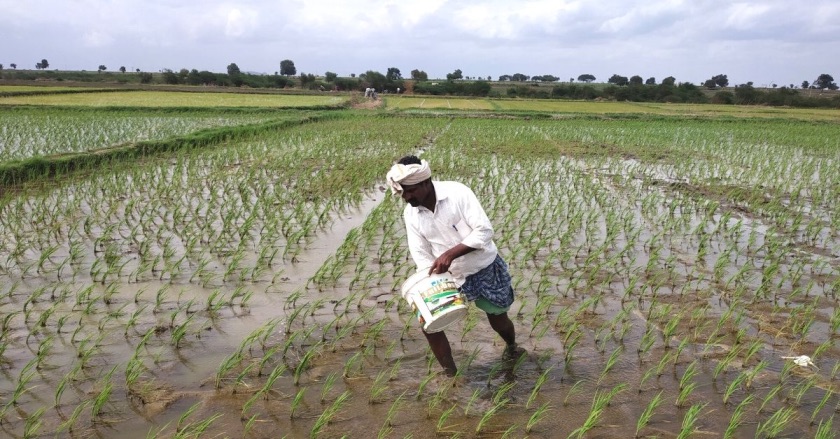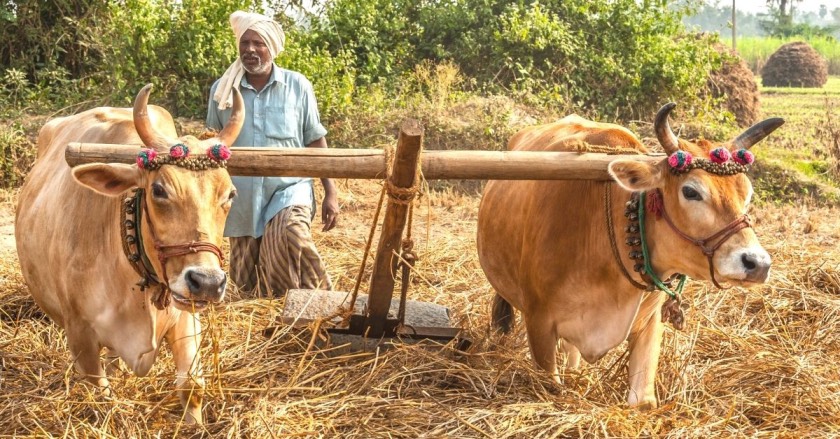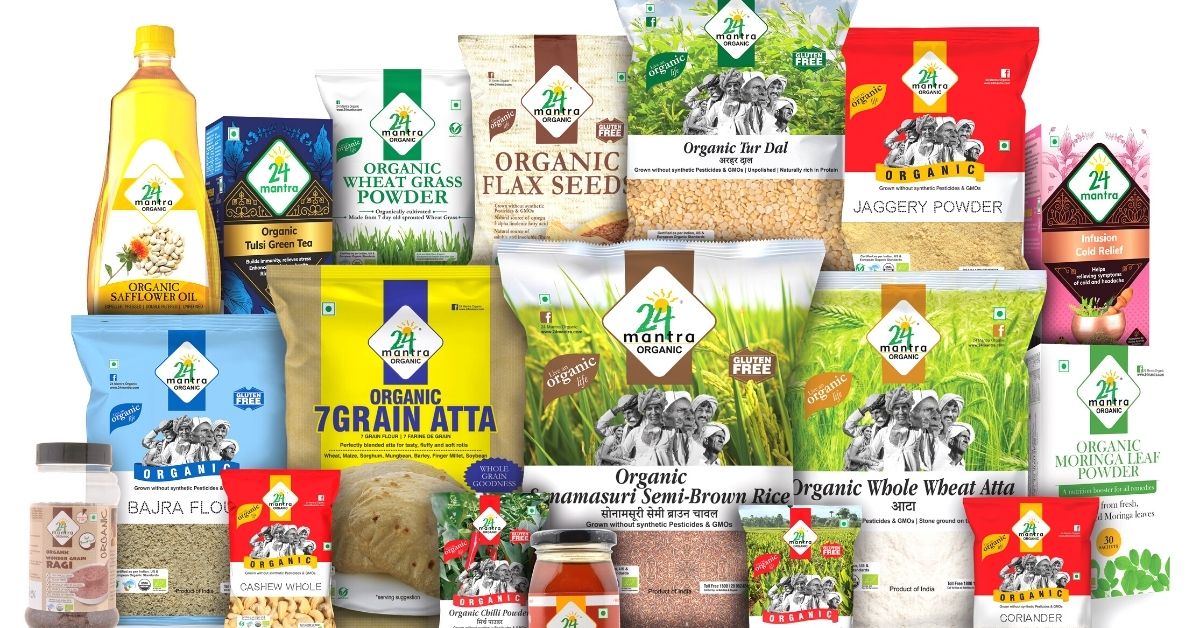In 1988, Raj Seelam, an agriculture graduate from Hyderabad, joined a chemical fertiliser and pesticide manufacturing company. Over the next 12 years, he worked closely with farmers, guiding them with seed purchase and the use of chemicals.
But in the process, Raj realised the harmful impact of these chemicals on agricultural land, as well as the ecosystem at large. “These insecticides and pesticides were designed to kill. They terminated microbes and other living organisms that were vital to maintaining the health of the soil,” the 56-year-old says.
Raj also found that the need for these chemicals had increased over the years. “Massive amounts of chemicals were being sprayed on vegetables such as cauliflower, cabbage, capsicum, potato and others. It was like bathing these vegetables with poison. A few farmers used 2-3 rounds of chemical fertilisers for a short 60-day crop,” he tells The Better India.
The heavy use of chemicals led to a drop in soil fertility and affected crop production. Raj also became witness to the farmers falling into debt traps and subsequently dying by suicide. “As they failed to earn enough money, the burden of debts increased. By the mid-1990s, I started realising the importance of sustainable farming techniques,” he adds.
Triggered by a personal loss

Raj’s final trigger came in 1999, when his father was diagnosed with cancer, and passed away the following year. “I am sure that it was the pesticide infused food and environment pollution that caused the illness,” he says.
Pained by his loss, Raj quit his job to start a sustainable livelihood venture. He launched Sresta Natural Bioproducts in 2004 and, to date, has helped over 45,000 farmers turn to practicing organic farming. They sell their produce to the company, which markets it under the brand 24 Mantra. Farmers say this helps them earn 30% more than the market price.
Raj says he decided to create an ecosystem to provide uncontaminated food to customers and reduce the negative impact of chemicals on the environment. “I researched for a couple of years and decided to source organic produce from farmers and sell it in the market. I began working with farmers in Nahargarh in Rajasthan and Murtizapur in Akola district of Maharashtra. Around 10-20 of them were trained in growing organic food in each state, with the help of local NGOs and agriculture experts,” he explains.
A few years later, Raj tried to sell the products in the retail market, but they did not receive acceptance. “This was in 2005, when the concept of organic food was not so popular, and the market was not ready. No one was ready to buy the products, and retailers complained that they occupied unnecessary space. The company outlets in Hyderabad, Bengaluru, Pune and Chennai began suffering losses. The only way to overcome this was by educating potential buyers. We decided to sell the products through farmer groups and create awareness simultaneously,” Raj says.
By 2008, N Balasubramanian, his friend, had joined him in the cause as CEO of the venture.
Getting farmers on board

Raj says it was difficult to change the mindset of farmers. “They believed that only the use of chemical fertilisers would deliver a good harvest. Moreover, it would take 3-4 years for the land to convert into organic soil. Farm production would reduce in the initial few years due to change in technique, before witnessing the expected outcome,” he says.
Hence, demonstrations on organic farming were held on an acre or two of land to win the farmers’ trust. Raj also travelled to states such as Gujarat, Uttarakhand and other parts of the country to meet those practising organic cultivation and understand what aspects could help convince other farmers. “We also started reaching out to farmers who we thought could easily be motivated. They were told about how their expenses could reduce, and how the health of the soil would improve. Some members of their families had suffered from cancer due to the handling of chemical fertilisers and pesticides. Such farmers agreed to experiment with us,” he says.
Moreover, it was important for farmers to form a cluster of at least ten individuals, covering a substantial amount of land. “The purpose for this rule was that collective farming would prevent contamination of soil and water from neighbouring farmers adopting chemical techniques,” he says.
Raj says that to bring farmers on board, the company promised to pay them a premium for the purchases, which was 10-30% more than the market price. “If the price of turmeric in the market was Rs 35 per kilo, we paid them Rs 55. They started joining the cause and, at present, over 2 lakh acres of land across 15 states including Andhra Pradesh, Karnataka, Tamil Nadu, Odisha, Jammu, Madhya Pradesh, Rajasthan, and Maharashtra have been converted into organic farms,” he adds. Over 200 products are available in 10,000 stores across India. Besides, the products are exported across 50 countries.
The company has a drop out rate of around 6%, as some farmers discontinue and find it hard to abide by the strict norms of quality.
Commitment to nature

Raj says all products undergo five-point checks. “There are station heads located at every 15-20 km of the clusters. They supervise, guide and inspect the farms. A third party inspection of farms from station heads outside the state ensures overcoming any flaw in the checking process,” he says.
Other steps in quality checks involve conducting scientific tests to identify traces of heavy metals or microbial contamination. “The mobile app also helps GeoTag the farms and monitor them. Agronomists deployed at the farms ensure the quality of compost, biopesticides and biofertilisers, and that their usage is in prescribed proportions. The necessary certifications obtained from global agencies help build trust among customers and monitor farming practices,” he adds.
Raj says the system allows each product to be traced back with the help of the batch number, enabling the tracking of its journey to its origin.
Baldev Singh, a farmer from Rajasthan, has been associated with the company since 2013. “I sell wheat to the company that I grow on 5 acres of land. The company pays Rs 200 more per kilo compared to the market price. Once the crop is sold, the money is deposited in the account within 60 days,” says the 39-year-old.
Another farmer, Arun Raut from Akola, says he receives regular guidance and encouragement from the company to grow organic food on his 8-acre land. “I became part of the venture around nine years ago, and now earn Rs 200-300 more per kilo for selling tur and chana dal to the company, making it a better deal than the market,” he adds.
Raj, however, feels that more work is waiting to be done. “The company aims to reach a million farmers to create a bigger impact. It has become vital for humans to go back to basics and stop unsustainable farming methods. The techniques should be modern, yet we need to connect with our roots. A handful of soil has millions of microorganisms, which give it fertility, increase water retention capacity and grow healthy food,” he says, and adds, “Nature has a lasting impact on our lives, and should be preserved.”
Edited by Divya Sethu
No comments:
Post a Comment